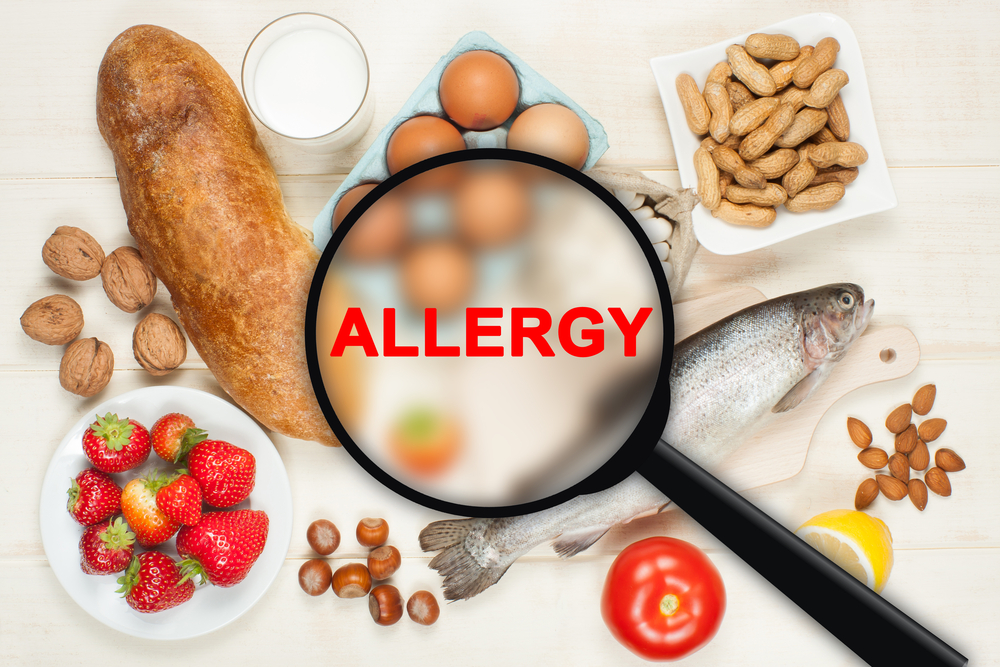A food allergy diagnosis for your child can feel overwhelming, turning everyday situations like mealtimes and school lunches into sources of anxiety. Creating a safe environment requires constant vigilance and clear communication. Coping with food allergies at home and school is a manageable challenge with the right strategies in place. While there is no cure, effective management and certain forms of allergy treatment at home, guided by a specialist, can improve quality of life. This guide offers practical tips for navigating food allergies in the two most important places in your child’s life. At Doral Health & Wellness, we have all the answers you need.
Coping With Food Allergies at Home
The home should be a haven for a child with food allergies. This is where you have the most control and where you can establish foundational habits for safety.
Create a Safe Kitchen
Preventing cross-contamination is one of the most critical aspects of managing food allergies in your home.
- Read Every Label, Every Time: Ingredients in packaged foods can change without warning. Make it a non-negotiable rule to read all food labels before purchasing and serving.
- Establish Allergen-Free Zones: If possible, designate specific kitchen counters, cutting boards, and utensils for preparing allergen-free meals. Color-coding can be a helpful visual cue for the whole family.
- Wash Hands and Surfaces: Always wash hands with soap and water before and after preparing food. Clean countertops, utensils, and cutting boards thoroughly to remove any allergen residue.
Education is Key
The entire family needs to be on board with the safety plan.
- Instruct Your Child: In an age-appropriate way, teach your child about their allergy. They should know what foods they cannot eat and the importance of only accepting food from trusted adults.
- Inform Family and Friends: When visitors come over or your child visits relatives, make sure everyone who might handle food is aware of the allergy and the safety rules.
Navigating Food Allergies at School
Sending a child with a food allergy to school requires a strong partnership between parents, school staff, and your child’s doctor.
Develop a Food Allergy Action Plan
This is the most important document for your child’s safety at school.
- Work with Your Allergist: Your allergist or a specialist at an immunology center will help you create a written Food Allergy & Anaphylaxis Emergency Care Plan.
- What It Includes: This plan clearly lists your child’s allergens, describes the symptoms of a reaction, and provides step-by-step instructions on what to do in an emergency, including how to administer an epinephrine auto-injector.
- Share It Widely: Provide copies of the plan to the school nurse, teachers, cafeteria staff, and any other relevant school personnel.
Communication and Collaboration
Open lines of communication with the school are essential for coping with food allergies at home and school.
- Meet with School Staff: Before the school year begins, meet with the principal, school nurse, and your child’s teacher to discuss the action plan.
- Classroom Safety: Discuss strategies for managing classroom celebrations, projects involving food, and lunchtime seating arrangements to minimize risk.
- Provide Safe Snacks: Consider providing a box of safe, non-perishable snacks for your child to have in the classroom, so they have an alternative during impromptu parties.
The Role of Professional Allergy Treatment
While avoidance is the primary strategy, it’s important to have a plan for accidental exposure. This is a key part of any allergy treatment at home and at school.
Emergency Medication
The most critical part of any allergy plan is being prepared for anaphylaxis, a severe, life-threatening allergic reaction.
- Epinephrine Auto-Injectors: Your child must have access to two epinephrine auto-injectors at all times. This is not optional. One set should be with them or a responsible adult, and another should be stored in a designated place at school, like the nurse’s office.
- Training: Ensure you, your child (if old enough), and school staff know when and how to use the auto-injector.
Working with Specialists
Managing a food allergy is a team effort, and medical experts are your most valuable players. Immunologists are at the forefront of research and treatment. A board-certified allergist can provide an accurate diagnosis and a comprehensive management plan.
For some food allergies, treatments like oral immunotherapy (OIT) may be an option. OIT involves consuming gradually increasing amounts of an allergen under strict medical supervision at an immunology center. This is a highly specialized treatment that aims to desensitize the immune system to reduce the severity of a reaction to accidental exposure. It should only be undertaken with guidance from an experienced specialist.
Living with food allergies presents daily challenges, but it does not have to limit your child’s life. By implementing robust safety measures at home, fostering a strong partnership with your child’s school, and working closely with medical professionals, you can create a supportive environment where your child can thrive safely and confidently. Call us on + 1-718-367-2555 to book your appointment now to receive best-in-class treatment that helps prevent or manage your allergies for a better life. Take action now, before it’s too late! If you need help, register your information at https://yuz88hfiyh7.typeform.com/Doralintake. Or visit us at 1797 Pitkin Avenue, Brooklyn, NY 11212.






